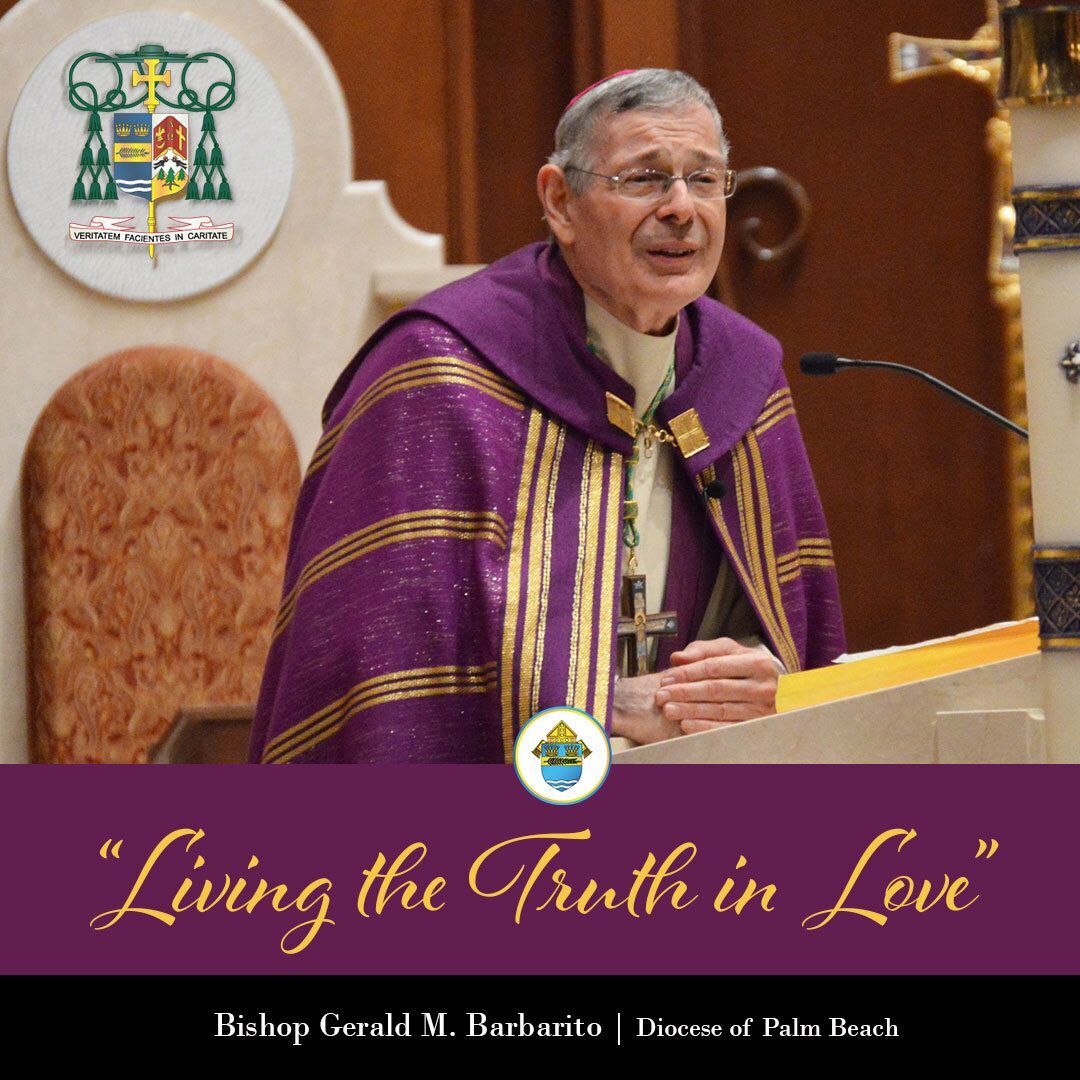
March 8, 2024
Lent – A Time to Reflect Upon the Sacraments
During this season of Lent, it is well for us to reflect upon the great gift of the sacraments in our lives. At the Easter Vigil, which we anticipate during Lent, some will celebrate the sacraments for the first time as all of us participate in the central action of the Church, the sacrament of the Eucharist. The sacraments are treasures of the Church which come directly from Christ and which enable us to enter into a living relationship with Him. Baptism makes us part of a chain in the life of the Church, which goes back to Christ and which we hand on to future generations. This certainly is true of all seven of the sacraments.
Many of us learned a simple definition of what a sacrament is from the Baltimore Catechism, which stated, “A sacrament is an outward sign instituted by Christ to give grace.” This is a simple but profound explanation of what a sacrament is as well as of its power. The Catechism of the Catholic Church teaches that, “The sacraments are efficacious signs of grace, instituted by Christ and entrusted to the Church, by which divine life is dispensed to us. The visible rites by which the sacraments are celebrated signify and make present the grace that is proper to each sacrament. They bear fruit in those who receive them with the required dispositions” (1131). This definition of the sacrament simply elaborates on that from the Baltimore Catechism.
There are essentially four elements that define a sacrament — sign, instituted by Christ, intended to give grace and entrusted to the Church. All of these elements are essential to our spiritual lives and incorporate us into the life of Christ in a manner that bonds us to each other as members of His Church. The sacraments are not private events. While they affect us personally, they come through the Church and make us full members of this community. They also make manifest the life of the Church in our world.
A sacrament is a sign. It is a symbol. It points to something beyond itself. However, unlike other symbols, a sacrament actually participates in what it signifies. A stop sign is a symbol. It reminds us to stop our cars for safety purposes. As bold as a stop sign may be, it does not actually stop our car. A wedding ring is a symbol of marriage. No matter how many memories and how much sentimental value a wedding ring may have, it simply points to the marriage and does not bring it about. A sacrament points to an action of Christ. The elements that are used in a sacramental ritual should be rich in helping us to understand to what they point. However, the sacrament goes beyond pointing to what it represents and actually brings it about. The sacrament of the Eucharist is not simply a symbol of the Body and Blood of Christ. It goes beyond what it points to and actually is the very Body and Blood of Christ Himself.
A sacrament is instituted by Christ. We believe in seven sacraments that come to us from the very hand of the Lord Himself. These sacraments are meant to help us realize the presence of Christ among us and to better, more fully realize what His saving mission has accomplished. While the Church is entrusted with the sacraments, it is the Lord who handed them to the Church for a specific person. While we can always better understand the sacraments, we cannot negate any of the seven sacraments nor can we add new ones to them. They are complete in themselves as part of the mystery of the Lord’s continuing mission in our lives.
A sacrament is meant to give grace. Grace is that which enables us to enter into a real and loving relationship with God. Grace is a gift. God’s relationship to us is one which He initiates out of His love for us. It is a relationship which defines us as human persons and which brings us fulfillment and joy in life. Each of the seven sacraments enhances the relationship that God has with us. To receive the grace which the sacraments bestow, we must celebrate them in a manner which is not routine but personal and meaningful. The Eucharist, the Sacrament of sacraments, is the one that we celebrate most frequently and the one from which and to which all the other sacraments flow. It is only by entering into the action of Christ in this tremendous mystery that we are enabled to know His life most fully.
A sacrament is entrusted to the Church. As much as a sacrament helps us to grow personally into the life of Christ, it is always meant to enable us to grow more deeply into the life of His Church. We do not come to God on our own. We come to Him through a family, which is His Church. It is in this Church that the sacraments are given to us and celebrated. Through the sacraments, we enter into a communion which brings us back to Christ and which will foster that communion for the future. The sacraments are always communal actions of the Church, even in the most private recesses of the confessional.
During Lent, as we reflect upon the gift of the sacraments and prepare to celebrate them in a special way at the Easter Vigil, we are grateful for these gifts from God which enable us to grow in our relationship with Him and with His Church. We must never forget the great mysteries and gifts which they are and always receive them with renewed fervor and gratitude. They are great treasures.
Most Reverend Gerald M. Barbarito

